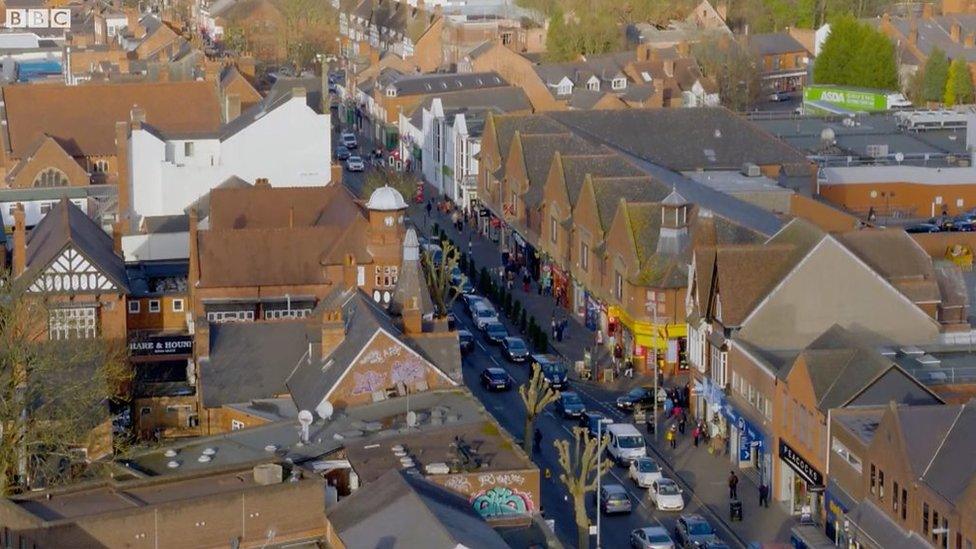The Low Traffic Neighbourhood dividing a Birmingham suburb
- Published
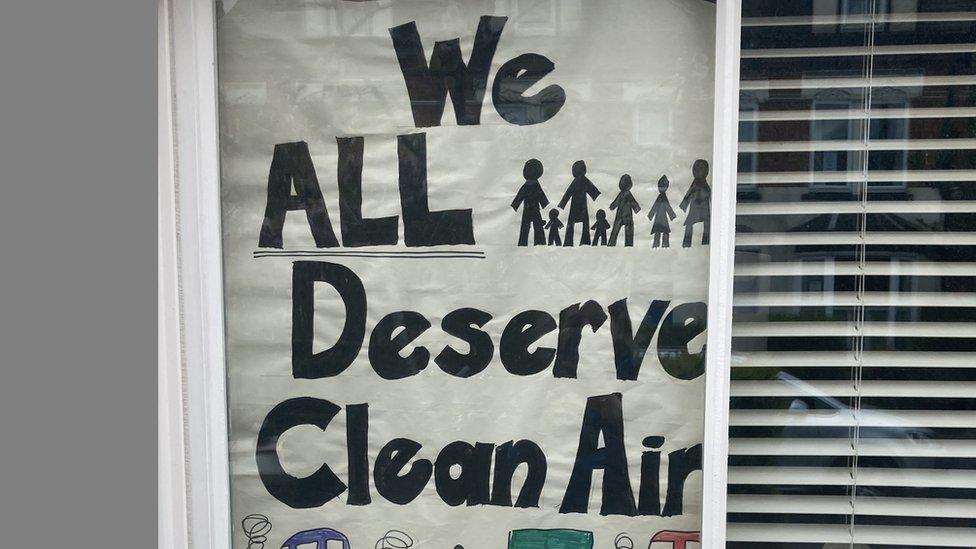
Residents in the affected streets are displaying posters
For some residents, a traffic reduction scheme has created a haven of cycle-friendly roads and outdoor dining space, but for others it has turned into a "nightmare" of frustrated drivers and idling buses. The BBC has spoken to some of those who have been affected.
Four miles south of Birmingham's city centre is the popular suburb of Kings Heath, known for its independent coffee shops and cafes. When a scheme to reduce traffic and pollution in the area was first discussed, keen walker and cyclist Suzannah Wilson said she thought it sounded "amazing."
But her excitement has turned to annoyance after, she says, the Low Traffic Neighbourhood, external (LTN) has led to cars and buses "continually idling" outside her home.
LTNs have attracted noisy opposition in other areas, with some similar schemes across the country being scrapped after vocal opposition.
The 42-year-old, who has lived in the neighbourhood for 20 years, said her street always had "free-flowing" traffic, but since access to some local roads were blocked almost eight months ago, during lockdown, Vicarage Road has turned into a "car park".
"I walk a lot, I cycle a lot, so I thought, 'this is just going to be amazing'," she said, "but it's just turned into a nightmare."
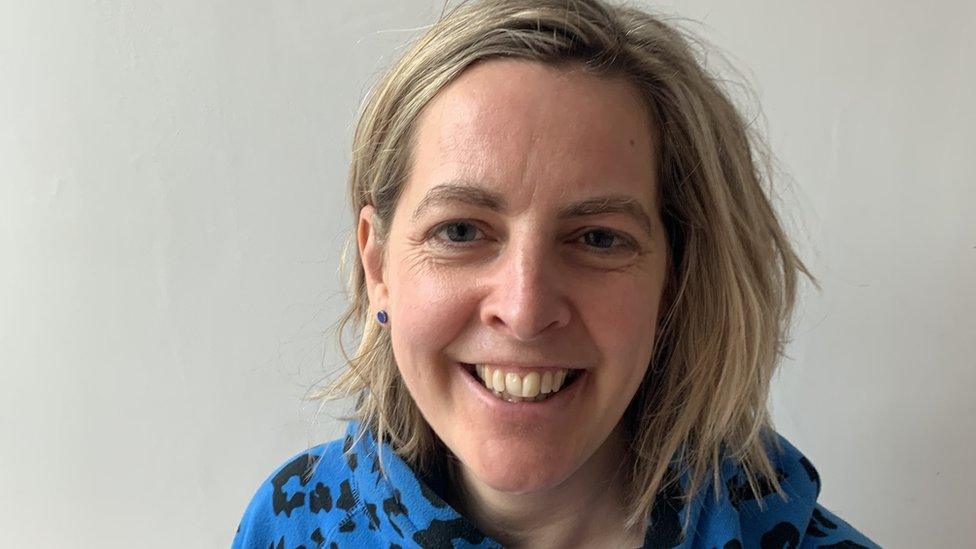
Susannah Wilson says she feels she is living in a congestion collar on the edge of the LTN
"The blocked roads are funnelling all the traffic on to just a few roads, and there is a queue of traffic outside the house continually," she said.
"We have a driveway but we can't get our car in or out, and if we do use it, we quite often have to abandon it in a nearby street.
"The general feeling on our road is not to abolish the scheme, but the council has to rethink it," she added.
The LTN, which is funded by money from central government, prevents cars going through the filters on nine local roads, and a pedestrianised area has been created on nearby York Road, where tables full of customers from local bars and restaurants now populate the road and pavements.
The measures are among several schemes introduced last year across the city including in Lozells, Castle Vale and Bournville, in a bid to reduce air pollution.
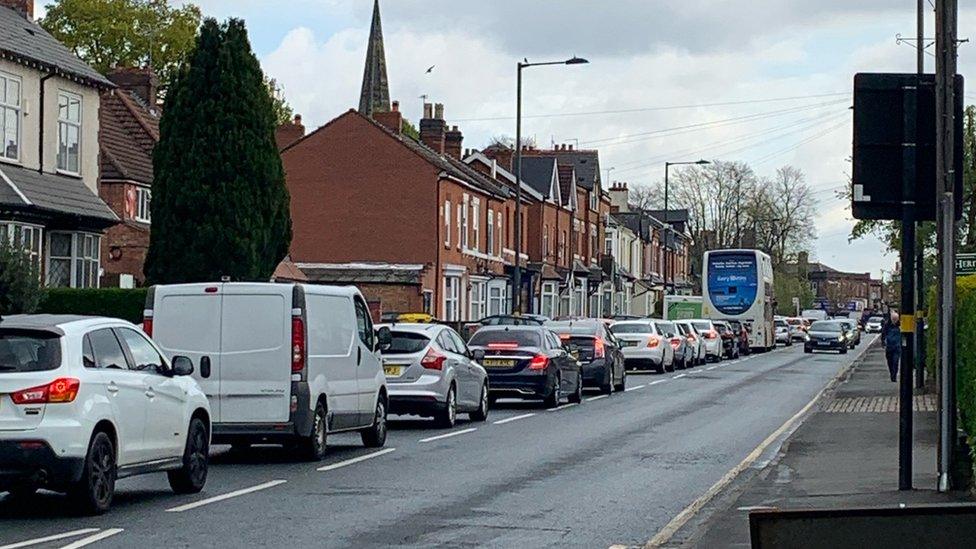
With queuing traffic on the high street, drivers had historically used the side residential streets to speed up their journey
Ms Wilson's concerns are echoed by local mum Catherine Hubbard, 40, who said she has to walk past a queue of stationary traffic to do the daily school run and "the sound of an idling bus outside my house is now pretty constant".
"It's really divided the community," she said.
"Some roads have got no traffic and some, like ours, have got all the traffic."
"Genuinely I would say it's not safer," she said, adding that drivers frustrated by queuing traffic were also causing problems.
"I've seen drivers bolting down the wrong side of the road, through red lights with honking horns. So not only is our road clogged with pollution it's more dangerous."
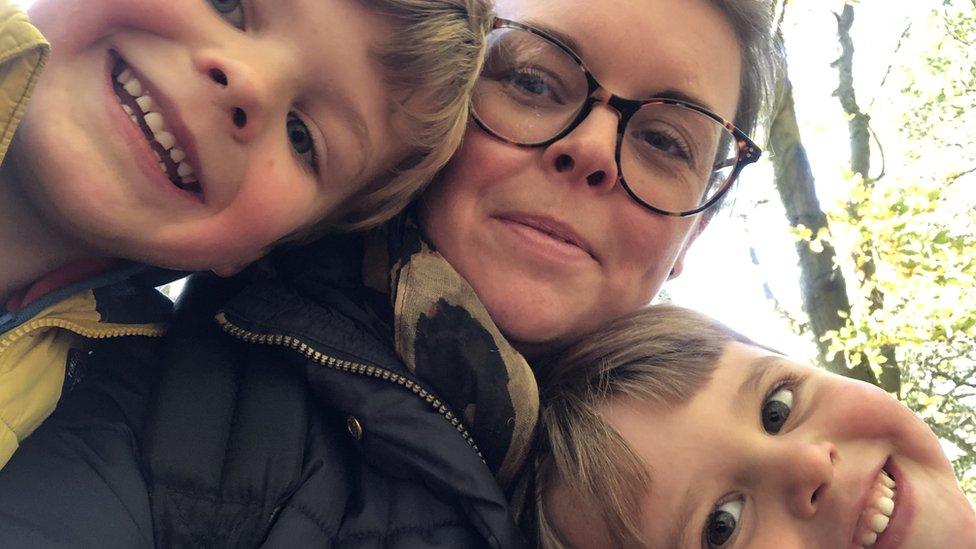
Catherine Hubbard said her sons were stressed about the increased pollution due to the increase in traffic
Birmingham City Council said it was looking at making the "temporary" schemes more permanent but is "constantly reviewing" them.
"Comprehensive monitoring" has been put in place across a wide area "to assess the impact on roads within and outside the scheme", it said.
Some residents have felt angered about a perceived lack of information from the local authority.
But councillor Waseem Zaffar said: "We are seeking community input at every stage and this feedback will be used to bring forward new proposals in the coming weeks that look to create a better environment for everyone."
A few streets away, Rachel Segal-Hamilton describes how much she is enjoying the changes and now feels "a lot safer" with her children on bikes.
"I'm able to cycle with my little child to nursery, which I wasn't able to do before because I didn't feel confident," she said.
But she added: "I can see it's not an instantaneous solution to all our problems and my heart goes out to those people who are experiencing more traffic in the immediate term."
In 2018 the busy high street was the centre of a clean air day which involved closing parking bays, changes to traffic light sequencing and reductions to bus fares.
Pollution levels were monitored by experts and with the help of the local community the results showed a substantial drop in nitrogen oxide levels.
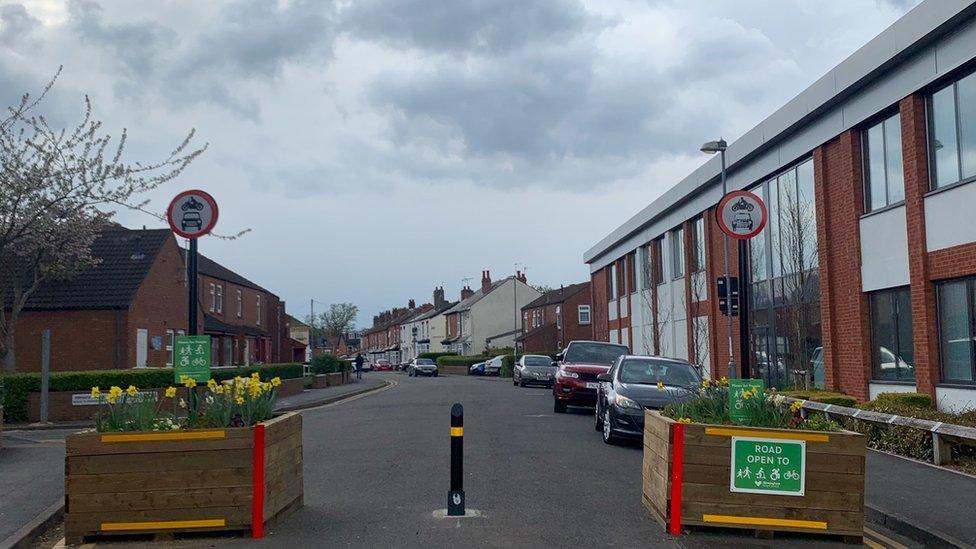
A petition calling for the abolition of the LTN barriers has been signed by more than 1,800 people
Jim Smithson, 42, from the community volunteer group Better Streets for B14, said the frustration of residents affected by increased traffic was "completely understandable," but it was the "transition period" when issues can occur.
"The key is behaviour change," he said, "people that would normally drive a short journey because it's really convenient will start thinking it's less convenient.
"The schemes are important for creating active travel corridors throughout the city, so you'll be able to cycle within one LTN along quieter streets."
Coventry's bicycle mayor Adam Tranter agreed adding, "it's the fact that we have too many cars on the roads, not the LTNs causing congestion.
"There are now 40 million registered vehicles on UK roads; double the amount there were in 1991. Residential roads have been used as a pressure release valve to cope with this increase.
"About a quarter of car journeys by Birmingham's residents are under a mile. If those journeys were switched by those who could, there wouldn't be any congestion," he added.
"People take time to adjust, they aren't stupid, they're not going to sit in traffic every day before they'll start to look at better, sustainable and more attractive solutions."
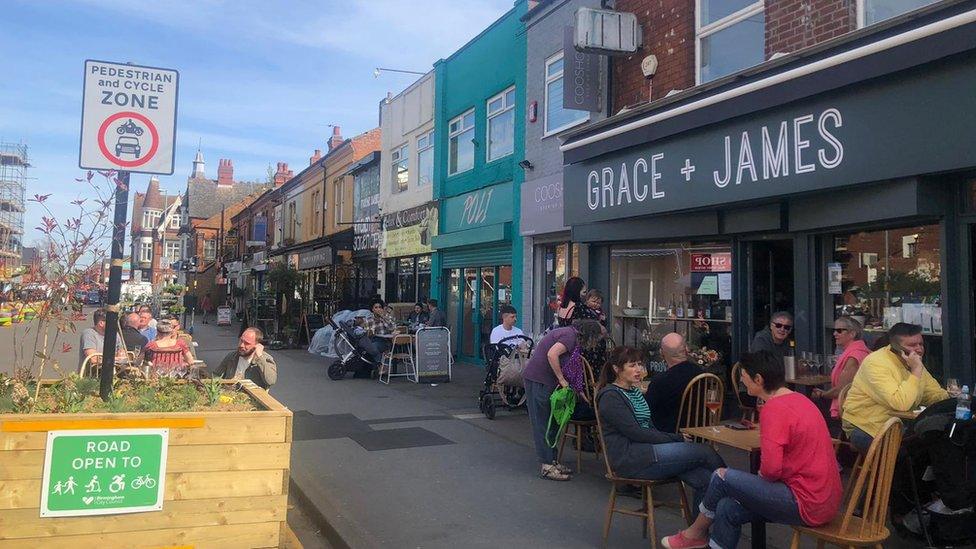
Some streets like York Road have been closed off to traffic, allowing customers to sit outside bars and restaurants
He is calling for stringent changes across the West Midlands including getting Andy Street, recently re-elected as mayor, to sign up to pledges including a target of 50% of all trips to be walked or cycled in urban areas by 2030.
One local bus driver recently posted on social media the current changes were adding 30 to 45 minute delays to bus times in the area, with one school advising parents that children travelling on delayed buses would not be reprimanded if they were late.
National Express West Midlands apologised to customers for delays but said it supported the concept of LTNs.
"We are sharing our data and our knowledge to refine the measures and get them working as smoothly as possible as lockdown restrictions ease and more people start going out and about," the company said.
Tom Cullen, who runs the popular I Choose Birmingham website, said a "divisive conversation" had sprung up in the city.
"The scheme has definitely divided the community, I think very few people seem to be open to the other point of view," he said.
"The conversation is obviously a heated one, but I'm not sure what the answer is."
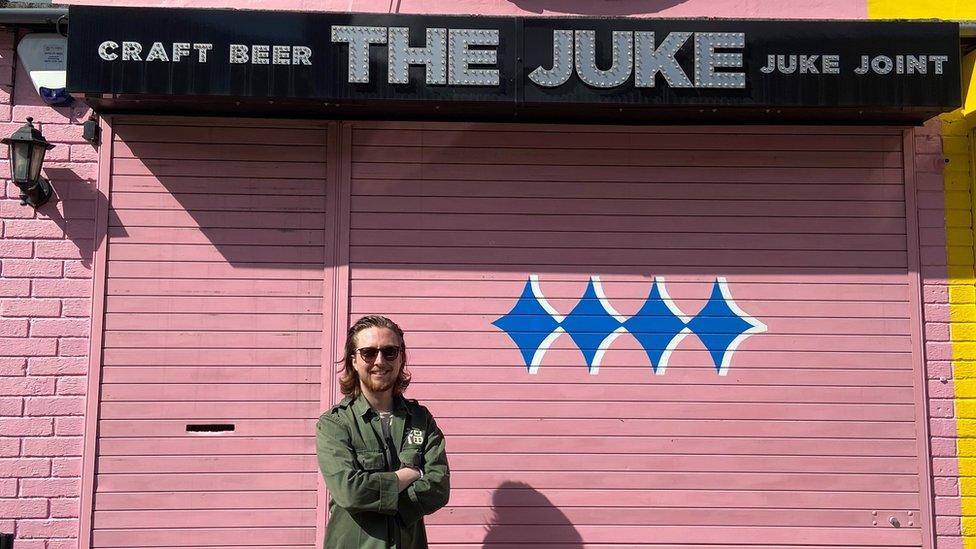
Tom Mee, who is resident on York Road, said the area was now a destination for great music, bars, shops and food
Away from the traffic-clogged high street and fierce debate, the success story of the LTN has been the pedestrianisation of York Road, according to bar owner Tom Mee.
The 26-year-old, who runs The Juke, a craft beer venue, said the road closure had created a "wonderful atmosphere, with people eating and drinking outside."
"It really has created a lovely communal feel to the area.
"I do accept there are parts of the LTN scheme that haven't been implemented quite as well," he added, "but with further collaboration and consultation I'm sure we can get what's best for the whole community."

Follow BBC West Midlands on Facebook, external, Twitter, external and Instagram, external. Send your story ideas to: newsonline.westmidlands@bbc.co.uk , external
- Published17 September 2020
- Published29 May 2021
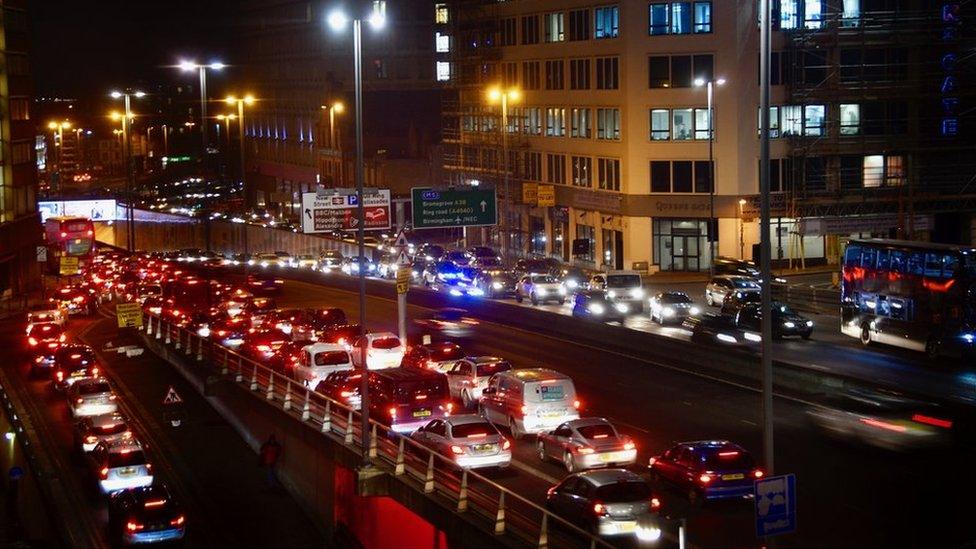
- Published5 May 2021
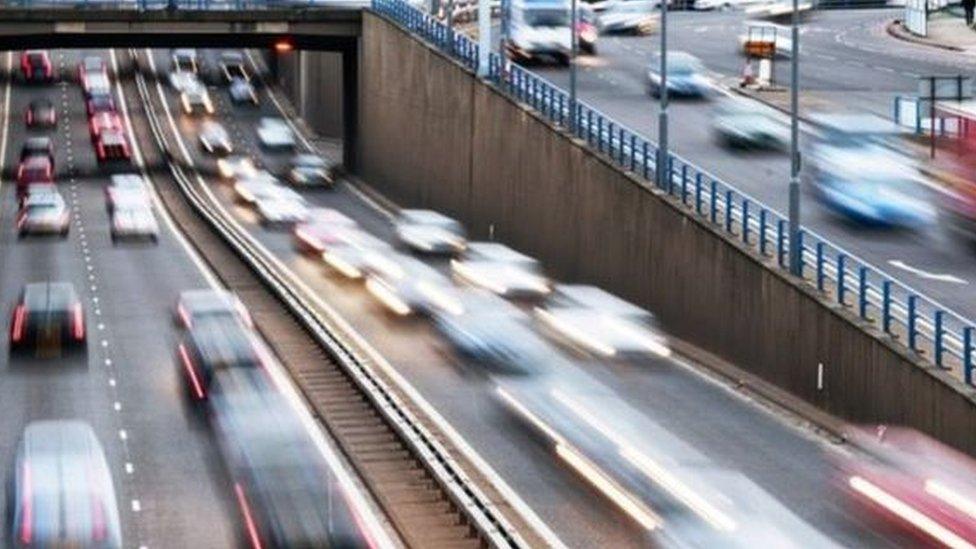
- Published2 May 2021

- Published21 April 2021

- Published19 January 2021
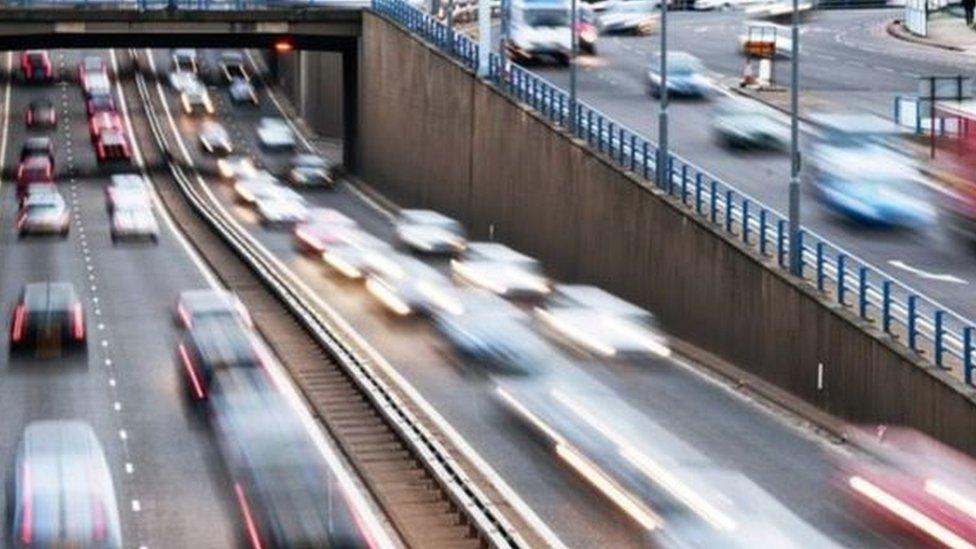
- Published31 March 2020
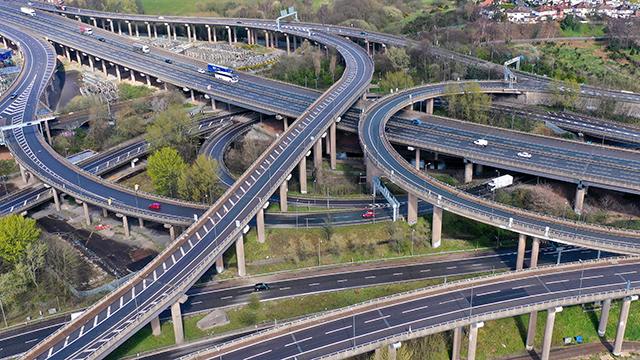
- Published8 April 2020

- Published11 January 2018
